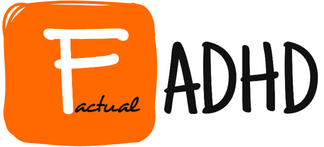
ADHD
Skills Coaching
for Adults
(from a professional with ADHD)
Zoom Sessions From Home or Work
ADHD Diagnosis Not Required.
Safe Session Documentation (Does Not Go In Your Medical Record).
Online Scheduling (No Phone Calls Required).
Neurodivergent-Friendly Zoom Sessions (Eye Contact Optional, Fidgeting Welcome).
Don’t let ADHD challenges hold you back from living your best life. Help your neurodivergent mind learn to thrive in a neurotypical world.
Whether you’ve recently been diagnosed or have known about your ADHD for years, this guided approach will help you gain practical tools for success.
From time management techniques to organization strategies, ADHD Skills Coaching can provide you with actionable steps to help improve focus, boost productivity, and take control of daily challenges.
It can feel like you’re fighting against your own mind just trying to function as well as those around you.
There’s more to it than just trouble paying attention. Untreated ADHD can make you less effective at work, with your kids, and in your relationships.
Give yourself some credit for the challenges you’ve faced so far and for your efforts to have a happy, fulfilling life. It hasn’t been easy, but somehow you made it to this point. And, in spite of the challenges of being distracted by so many other things on the internet, you’ve somehow made it this far in your search for help with your ADHD.
Living With ADHD Can Be A Daily Struggle
You can be certain you’ll get realistic, down-to-earth explanations and skills in every session because…
***I have ADHD, too.***
Dave Payne (he/him)
So, while I can’t claim to know exactly what your experience of ADHD is like, I do have a thorough firsthand understanding of how challenging it can be to live with ADHD long-term, as well as the day-to-day issues that can arise.
I know how hard it is just to search for a specialist, schedule an appointment, complete paperwork, and then show up for the first session. It’s a process that can set you up for procrastination, distraction, frustration, and lack of motivation.
If that sounds like you, you probably recognize how important it is to take action now, while you’re motivated…(or risk putting this off for another few months).
Therefore, if you feel you may be struggling with the challenges of ADHD, I encourage you to take the first step by setting up a free consult so we can figure out if ADHD Skills Coaching is right for you.
Counseling vs. Coaching
Which is best for your needs?
If it turns out that counseling would better suit your needs, I offer ADHD Counseling & Diagnosis in Kentucky, Ohio & Florida (meaning you must be located in one of those states at the time of each session). For more information, go to:

Could It Be ADHD?
Do you lose track of things pretty often?
…Your glasses…keys…phone…shoes…paperwork…bills…
Is it easier for you to start projects than it is to finish them?
…Leaving you with a lot of halfway-finished things…
Is procrastination getting in the way of your happiness?
…Like you know what needs to be done, but can’t get started…
Do you often find yourself wondering why you can’t just get your life together the way other people seem to?
While these things happen to everyone from time to time, adults with Attention Deficit Hyperactivity Disorder (ADHD) find themselves experiencing these problems quite often…and it really gets in the way of their everyday lives.

Schedule A Free Consult
Let’s make sure that I can actually provide the help you’re looking for.
You won’t feel any pressure to sign up. And if it turns out I’m not the best fit, I’ll try to point you in a helpful direction.
Phone consult is optional (not a requirement).
Communication via texting & email work fine if that’s more comfortable for you.
If you’d prefer that your free consultation take place on Zoom, let me know ahead of time and I’ll send you a link.
Useful ADHD Concepts
NEUROTYPICAL & NEURODIVERGENT
These terms are used to describe the different ways that people's brains work.
Neurotypical refers to people who think and process information in ways that are “typical” within their culture. They tend to learn skills and reach developmental milestones around the same time as their peers.
Neurodivergent describes someone who processes information in a different way. People with ADHD and similar conditions sometimes identify as neurodivergent.
Neurodiversity is used to describe the diversity of human minds, and to argue that neurological differences should be seen as normal variations, rather than as disorders.
The Neurodiversity Movement advocates for the rights of neurodivergent people, and for the creation of a more inclusive society.
It is important to remember that neurotypical and neurodivergent are not mutually exclusive categories. There are many people who fall somewhere in between, and who may have both neurotypical and neurodivergent traits.
•••
EXECUTIVE FUNCTIONS
A set of thinking skills that allow us to plan, organize, and execute tasks. They are essential for our ability to think ahead, make decisions, and solve problems.
While there is no single agreed-upon list of executive functions, here are some common examples:
Planning and prioritizing: The ability to break down a large task into smaller, more manageable steps, and to determine which steps should be completed first.
Time management: The ability to estimate how long a task will take, and to stay on track to meet deadlines.
Organization: The ability to keep track of belongings and information, and to set up systems and routines to help stay organized.
Working memory: The ability to hold information in mind for a short period of time, and to use that information to complete a task.
Self-monitoring: The ability to be aware of one's own thoughts, feelings, and behaviors, and to make adjustments as needed.
Flexibility: The ability to adapt to change, and to be able to think outside the box when solving problems.
Executive functions help us be productive, organized, and successful. Here are some examples of how executive functions are used in everyday life:
When you are working on a project, you use executive functions to set goals, break down the project into smaller tasks, and stay focused on the task at hand.
When you are driving, you use executive functions to pay attention to the road, follow directions, and make decisions about when to change lanes or turn.
When you are trying to solve a problem, you use executive functions to gather information, generate possible solutions, and evaluate the solutions.
•••
ADD vs. ADHD
(it is now called adhd)
In the past, Attention Deficit Disorder (ADD) and Attention Deficit Hyperactivity Disorder (ADHD) were considered to be separate. The main difference between ADD and ADHD was the presence or absence of hyperactivity. However, they are now considered to be different presentations of the same underlying condition, which all falls under the official diagnosis of ADHD. An official, clinical diagnosis of ADHD will most likely be one of the following three types:
Predominantly inattentive presentation
Predominantly hyperactive/impulsive presentation
Combined presentation
•••
IS ADHD CAUSED BY TRAUMA?
(no, but it can look that way)
ADHD is caused by a combination of genetic and environmental factors. It is not caused by any single event or experience, and it isn’t caused by trauma. Not everyone with ADHD has experienced trauma, and not everyone who experiences trauma will develop ADHD.
Trauma can affect the brain in a number of ways, including by altering the way that the brain processes information and responds to stress. This can lead to symptoms that are similar to ADHD, such as difficulty paying attention, poor impulse control, and hyperactivity.
•••
IS THERE A CURE FOR ADHD?
(no, but it can be managed)
ADHD is not a curable condition, but it can be managed with treatment. If certain symptoms appear to go away over time, this is most likely due to improved skills and coping mechanisms.
•••
IS ADHD A GIFT / SUPERPOWER?
(it depends)
Whether or not ADHD is a gift or superpower is a matter of perspective. Some people with ADHD may find that their symptoms give them certain advantages, such as creativity and hyperfocus. Others may find that their symptoms make it difficult to function in everyday life. For most people, it’s probably a combination of both—ADHD brings some advantages and some disadvantages.
Some potential benefits of ADHD:
Creativity: People with ADHD are often very creative. They may be able to see the world in new and different ways, and they may be able to come up with creative solutions to problems.
Hyperfocus: People with ADHD can sometimes hyperfocus on a task, which can allow them to work on something for hours without getting distracted. This can be a great asset in certain situations, such as when working on a creative project or studying for an exam.
Some potential challenges associated with ADHD:
Difficulty paying attention: People with ADHD may have difficulty paying attention to details, following instructions, and staying on task. This can make it difficult to succeed in school or at work.
Impulsivity: People with ADHD may act on impulse without thinking about the consequences. This can lead to problems in relationships, at work, and in school.
Disorganization: People with ADHD may be disorganized and forgetful at times. This can make it difficult to keep track of things and to meet deadlines.
Keep in mind that ADHD symptoms can vary from person to person. Some people with ADHD may experience only a few mild symptoms, while others may experience more severe symptoms that significantly impact their lives.








































